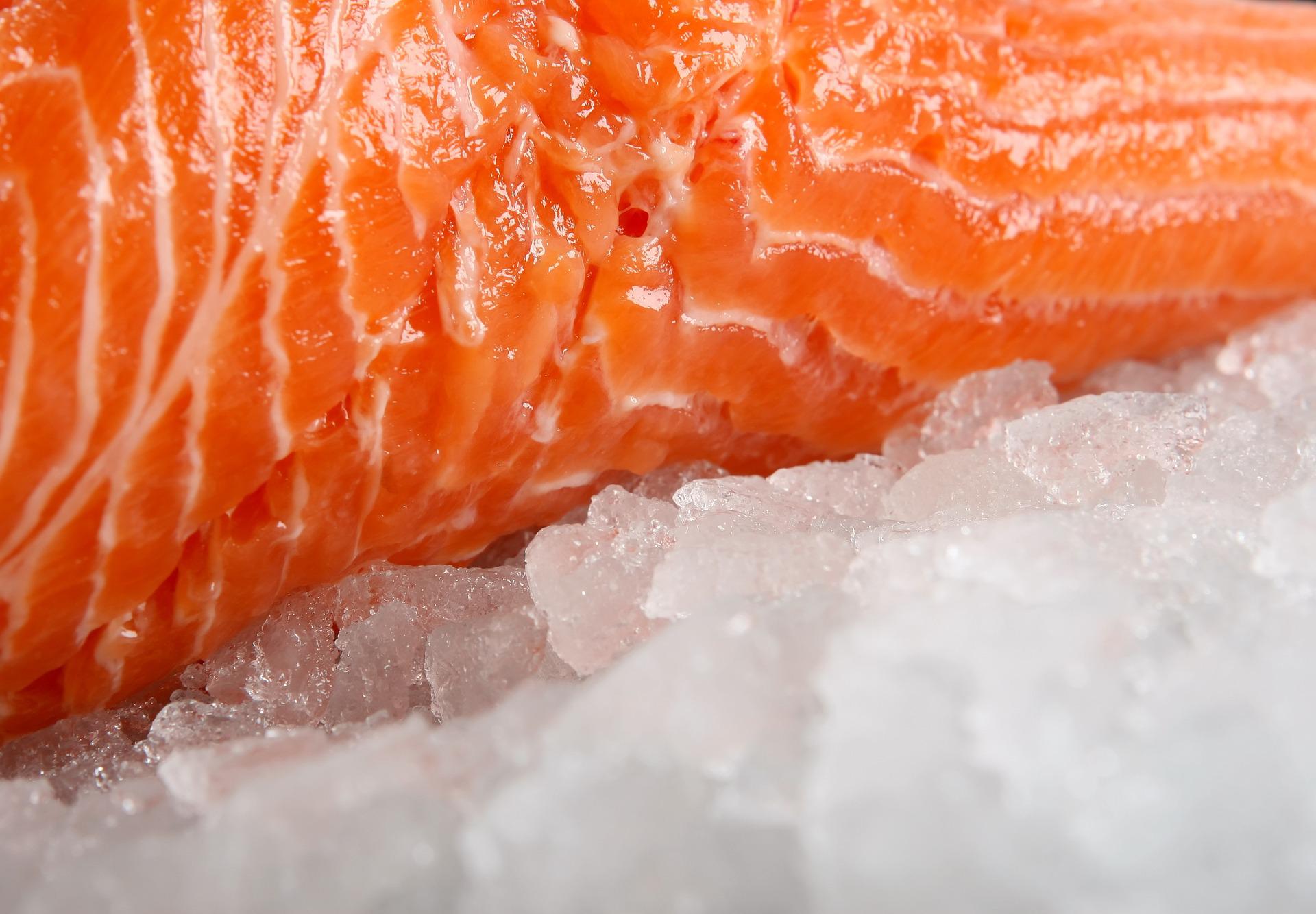Freezing Cooked Fish: The Ultimate Guide To Preserve Flavor And Quality
Listen up, seafood lovers! If you’ve ever wondered how to freeze cooked fish without sacrificing its taste and texture, you’re in the right place. Freezing cooked fish is more than just throwing leftovers into the freezer—it’s an art that requires a bit of know-how. Whether you’re a home cook or a foodie enthusiast, mastering this technique can save you time, money, and frustration. Let’s dive in and uncover the secrets to freezing cooked fish like a pro!
Have you ever pulled out frozen fish from your freezer only to find it’s dry, flavorless, or worse, freezer-burned? Trust me, I’ve been there. But here’s the deal: freezing cooked fish doesn’t have to be a gamble. With the right methods and a little bit of care, you can preserve the deliciousness of your favorite seafood dishes for weeks, even months. This guide will walk you through everything you need to know.
From understanding the science behind freezing to practical tips and tricks, we’ve got you covered. So, whether you’re a seasoned chef or a newbie in the kitchen, this article will help you unlock the secrets of freezing cooked fish without losing its charm. Ready to get started? Let’s go!
Read also:Unveiling The Potential Of Sotwe Turk Ifsa
Why Freezing Cooked Fish Matters
Alright, let’s talk about why freezing cooked fish is such a big deal. First off, seafood doesn’t come cheap. If you’ve spent good money on fresh fish, you want to make sure you’re not wasting a single bite. Freezing cooked fish is not only a great way to save leftovers but also a smart move for meal prepping. Imagine having a stash of ready-to-eat fish dishes in your freezer, just waiting to be reheated and enjoyed. Sounds pretty awesome, right?
Plus, freezing cooked fish extends its shelf life significantly. Instead of worrying about how long it’ll stay fresh in the fridge, you can rest easy knowing that your fish will be good to go whenever you’re ready. And let’s not forget the convenience factor. Who doesn’t love having a quick, nutritious meal on hand for those busy weeknights?
Understanding the Basics of Freezing Cooked Fish
Before we get into the nitty-gritty, it’s important to understand the basics of freezing cooked fish. Contrary to popular belief, not all fish freezes equally well. Some types of fish are more prone to texture changes when frozen, while others retain their quality beautifully. Here’s what you need to know:
- Fatty fish like salmon and mackerel tend to freeze better than lean fish because their fat content helps preserve flavor and moisture.
- Proper packaging is key to preventing freezer burn. Air is the enemy here, so make sure your fish is tightly sealed before freezing.
- Freezing cooked fish doesn’t kill bacteria, but it does stop them from growing. That’s why it’s crucial to start with fresh, properly cooked fish.
How to Freeze Cooked Fish: Step-by-Step Guide
Now that you know the basics, let’s dive into the step-by-step process of freezing cooked fish. Follow these tips, and you’ll be freezing like a pro in no time:
Step 1: Let It Cool Down
Never freeze hot food—it can raise the temperature of your freezer and compromise the quality of other frozen items. Allow your cooked fish to cool down to room temperature before freezing. This usually takes about 30 minutes to an hour, depending on the size of the portion.
Step 2: Portion It Out
Divide your cooked fish into individual portions or meal-sized servings. This makes it easier to thaw only what you need, reducing waste and ensuring freshness. Plus, it’s just more convenient!
Read also:Mastering Remote Iot Monitoring With Ssh
Step 3: Wrap It Tightly
Use plastic wrap, freezer-safe bags, or vacuum-sealed bags to wrap your cooked fish. The key here is to remove as much air as possible. Air exposure leads to freezer burn, which can ruin the texture and flavor of your fish.
Step 4: Label and Date
Always label your frozen food with the date and contents. This helps you keep track of how long your fish has been in the freezer. For best results, consume frozen cooked fish within 2-3 months.
Common Mistakes to Avoid When Freezing Cooked Fish
Even the best-laid plans can go awry if you’re not careful. Here are some common mistakes to avoid when freezing cooked fish:
- Not cooling the fish properly: Freezing hot food can lead to uneven freezing and affect the quality of your fish.
- Using improper packaging: Regular plastic bags or containers won’t cut it. Invest in freezer-safe materials to ensure your fish stays fresh.
- Freezing for too long: While freezing can extend the shelf life of cooked fish, it’s not indefinite. Over time, the quality will start to decline.
Can You Refreeze Cooked Fish?
Here’s a question that comes up a lot: can you refreeze cooked fish? The short answer is yes, but with caution. Refreezing cooked fish is safe as long as it has been handled properly and hasn’t been left out at room temperature for more than two hours. However, each time you freeze and thaw fish, its quality may degrade slightly. To avoid this, it’s best to freeze your fish in small portions so you only thaw what you need.
How to Thaw Frozen Cooked Fish Safely
Thawing frozen cooked fish is just as important as freezing it. Here are a few safe methods to defrost your fish:
Method 1: Refrigerator Thawing
This is the safest and most reliable method. Simply place your frozen fish in the refrigerator overnight. It may take 12-24 hours, but the slow thawing process helps preserve the texture and flavor.
Method 2: Cold Water Thawing
If you’re in a hurry, you can thaw your fish in a bowl of cold water. Make sure the fish is in a sealed plastic bag to prevent water from seeping in. Change the water every 30 minutes to keep it cold. This method usually takes 1-2 hours.
Method 3: Microwave Thawing
For a quick fix, use your microwave’s defrost setting. Keep an eye on the fish to prevent it from cooking. This method is best for small portions.
Best Practices for Freezing Cooked Fish
Here are some best practices to keep in mind when freezing cooked fish:
- Always use fresh, high-quality fish to start with.
- Freeze cooked fish as soon as possible after cooking to lock in freshness.
- Consider adding a layer of oil or butter on top of the fish before freezing to protect it from freezer burn.
- Experiment with different packaging methods to find what works best for you.
Health Benefits of Freezing Cooked Fish
Freezing cooked fish isn’t just about convenience—it’s also about health. By freezing your own fish, you can control the ingredients and avoid preservatives found in store-bought frozen meals. Plus, seafood is packed with nutrients like omega-3 fatty acids, which are great for heart health. So, by freezing cooked fish, you’re not only saving money but also ensuring you have access to healthy meals anytime you need them.
Tips for Maintaining Flavor and Texture
Freezing cooked fish doesn’t have to mean sacrificing flavor and texture. Here are a few tips to help you maintain the quality of your fish:
Tip 1: Add a Protective Layer
Coat your fish with a thin layer of oil, butter, or sauce before freezing. This acts as a barrier against freezer burn and helps retain moisture.
Tip 2: Use Quality Packaging
Invest in high-quality freezer bags or vacuum-sealed bags. These materials are designed to keep air out, ensuring your fish stays fresh for longer.
Tip 3: Freeze Quickly
The faster your fish freezes, the smaller the ice crystals that form. This helps preserve the texture and prevents damage to the fish’s cell structure.
Conclusion: Your Go-To Guide for Freezing Cooked Fish
There you have it—everything you need to know about freezing cooked fish. From understanding the basics to mastering the techniques, this guide has got you covered. Freezing cooked fish is a simple yet effective way to save time, money, and effort in the kitchen. So, whether you’re prepping for the week or preserving leftovers, give it a try and see the difference it makes.
Now, here’s where you come in. Did you find this guide helpful? Have you tried freezing cooked fish before? Share your experiences and tips in the comments below. And don’t forget to bookmark this page for future reference. Happy freezing, and see you in the next article!
Table of Contents
- Why Freezing Cooked Fish Matters
- Understanding the Basics of Freezing Cooked Fish
- How to Freeze Cooked Fish: Step-by-Step Guide
- Common Mistakes to Avoid When Freezing Cooked Fish
- Can You Refreeze Cooked Fish?
- How to Thaw Frozen Cooked Fish Safely
- Best Practices for Freezing Cooked Fish
- Health Benefits of Freezing Cooked Fish
- Tips for Maintaining Flavor and Texture
- Conclusion


